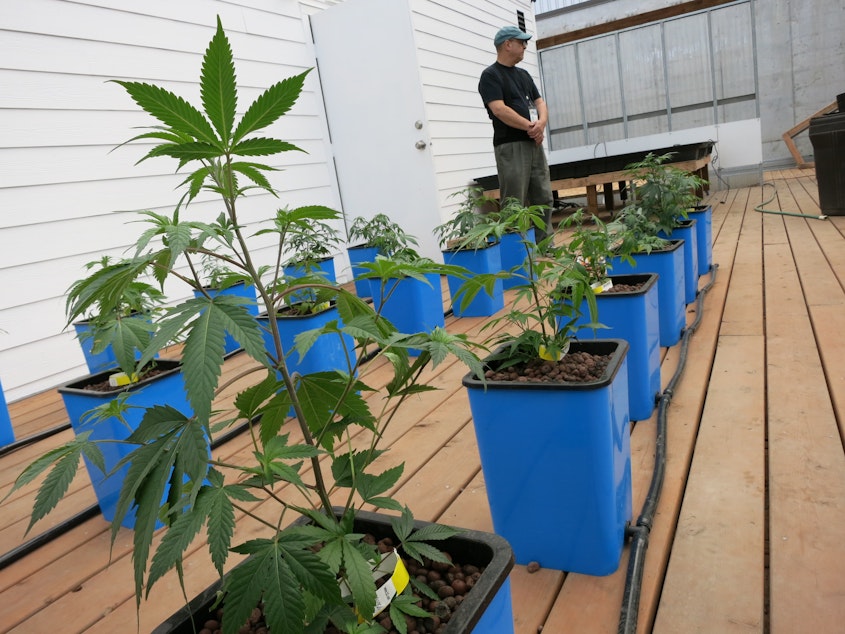If you want to know about pesticides in your pot, you have to ask

The Washington State Liquor and Cannabis Board is taking steps to address high levels of pesticides found in some legal marijuana samples. But the agency does not currently require testing for pesticides. Growers say for now, it’s up to consumers to seek that information.
TRANSCRIPT
Last week the Washington State Liquor and Cannabis board approved the state’s first threshold levels for certain pesticides. Marijuana with higher pesticide levels could face a product recall.
Danielle Rosellison and her husband are licensed marijuana growers and processers in Bellingham. They rely on small rooms and controlled environments to grow without pesticides, but she’s not sure customers appreciate that.
Rosellison: “When we talk to retailers they tell us it’s not an issue. And I’m dumbfounded.”
Sponsored
Rosellison says customers may not realize that marijuana is not governed by the rules restricting pesticides for food crops. And there’s no standard product testing. But she says details about pesticide use are public, customers just have to ask.
Rosellison: “Growers have to give retailers the list of pesticides used in their products, and then if the customer asks, they have to be able to get that information from the retailers.”
State regulators also eliminated the residency requirement for people to give cash or loans to marijuana businesses in Washington. It opens the doors to outside money, but not outside ownership. Rosellison serves on the board of the Cannabis Alliance and says industry members are completely split on that proposal.
Seattle attorney Robert McVay says his marijuana business clients are also divided – those doing well in the current system don’t want to fuel more competition. But others are eager for capital, and out-of-state financiers want to supply it.
McVay: “Lending is not exactly what they want to do, but they still see an opportunity there. Especially when there’s this idea or optimism from some of those out-of-state investors that someday that barrier to ownership will also fall.”
Sponsored
One final change by state regulators: Businesses must now pay their taxes electronically or by check “to reduce the safety risks associated with large amounts of cash.” McVay says banking access for marijuana businesses – once a rarity – has quietly improved, with accounts first from credit unions and now from many large banks.

